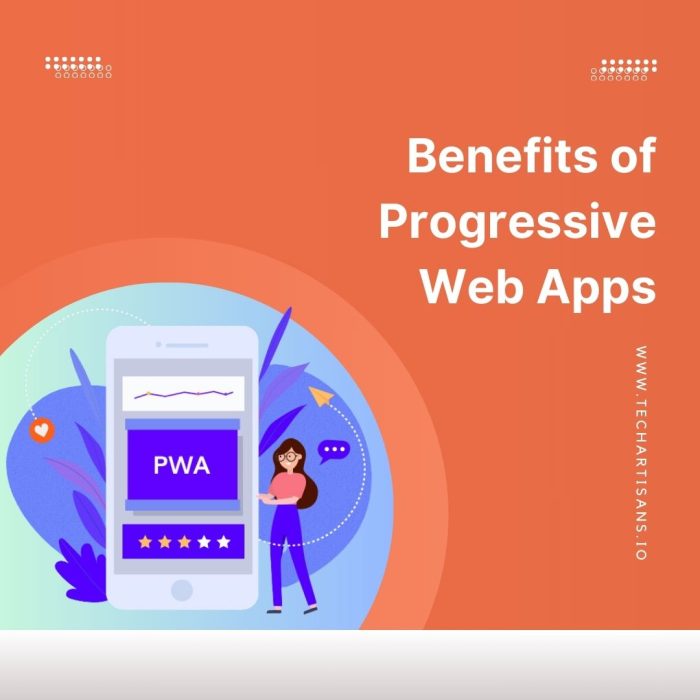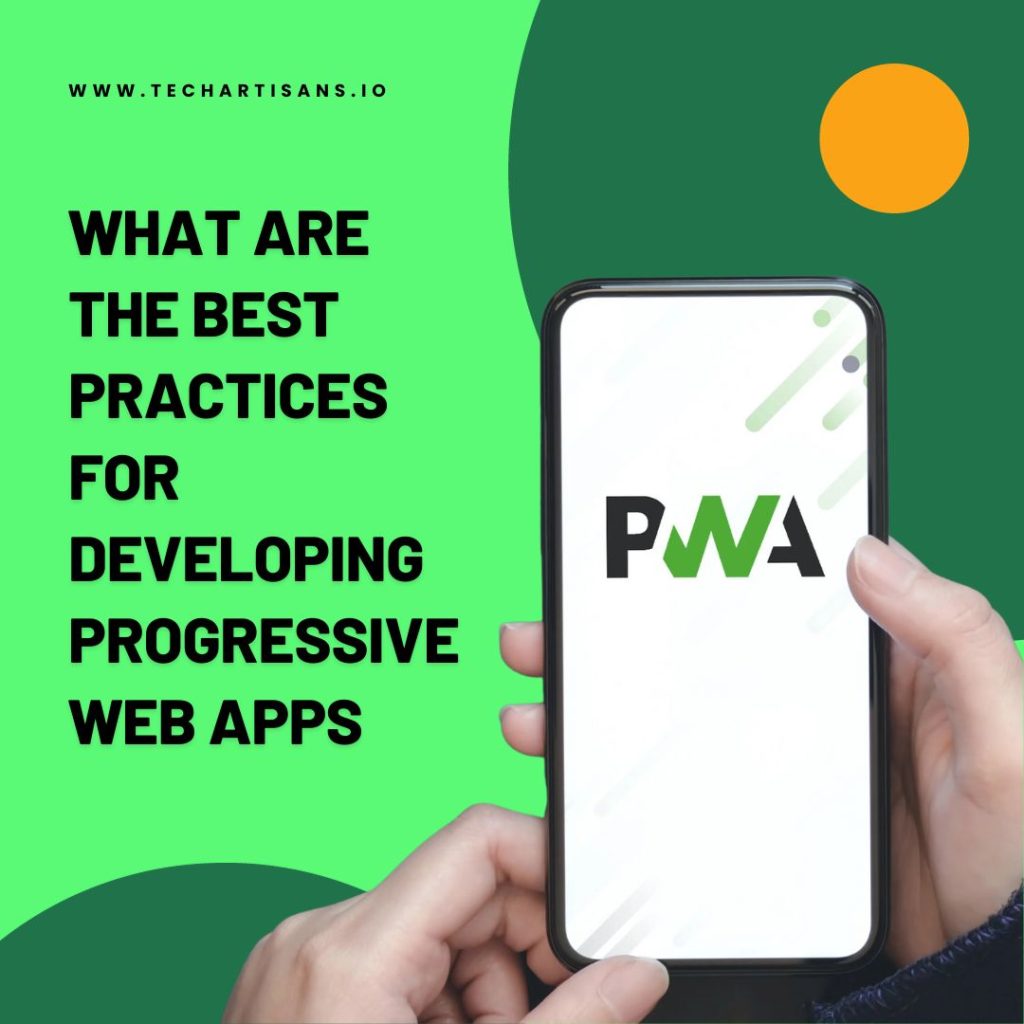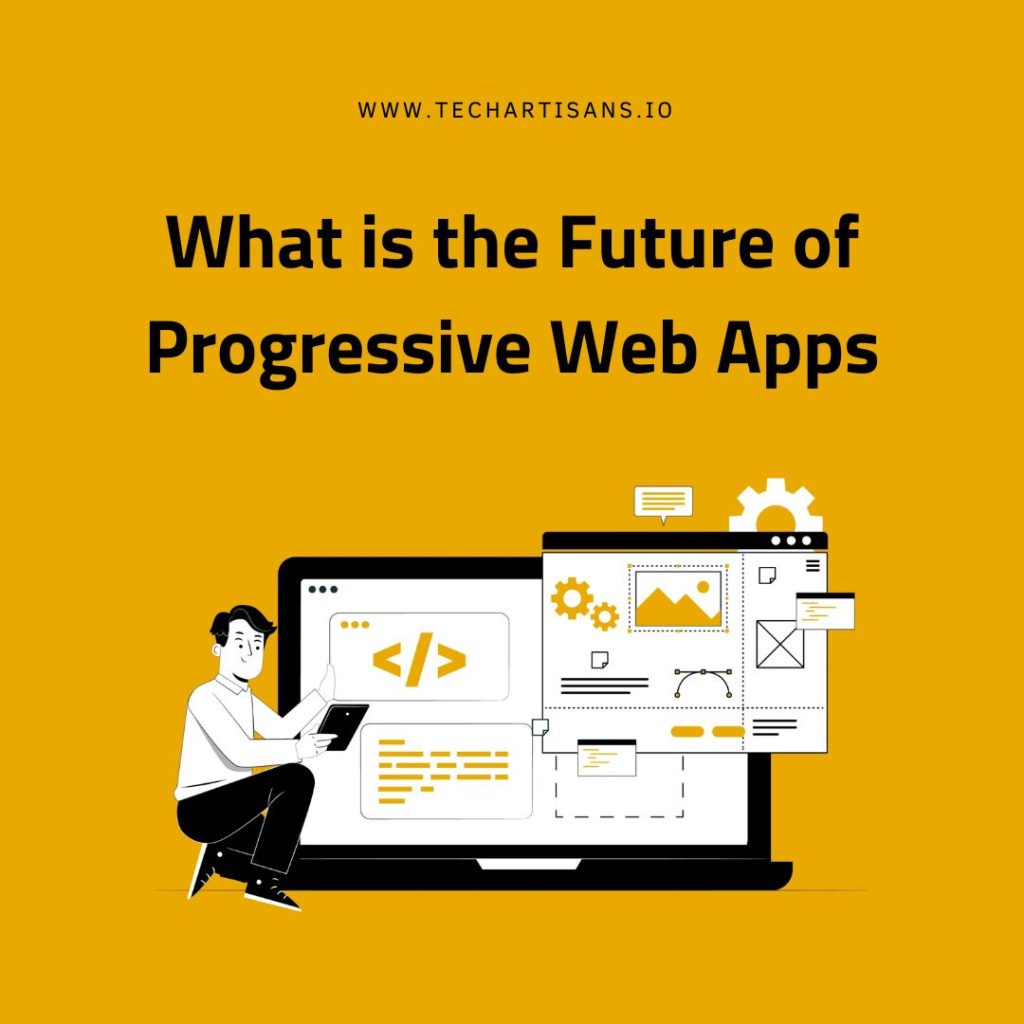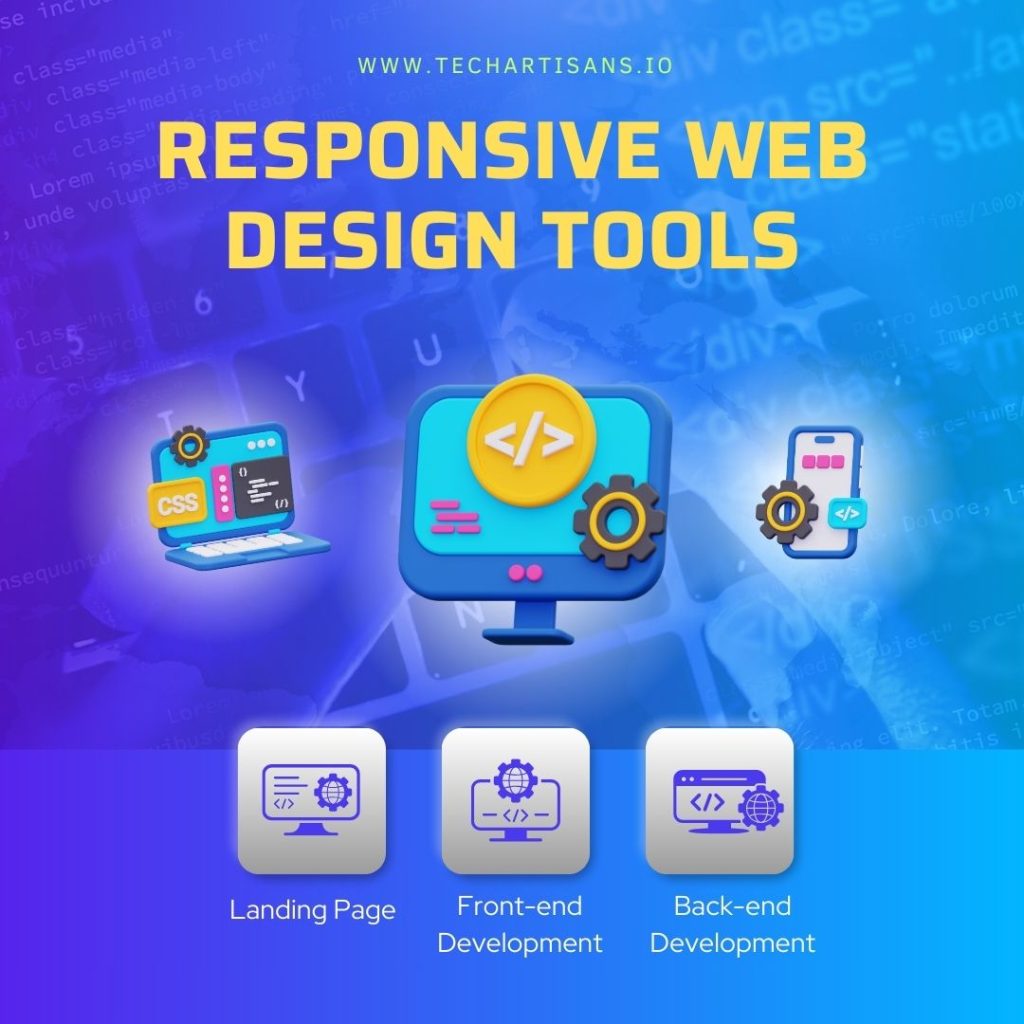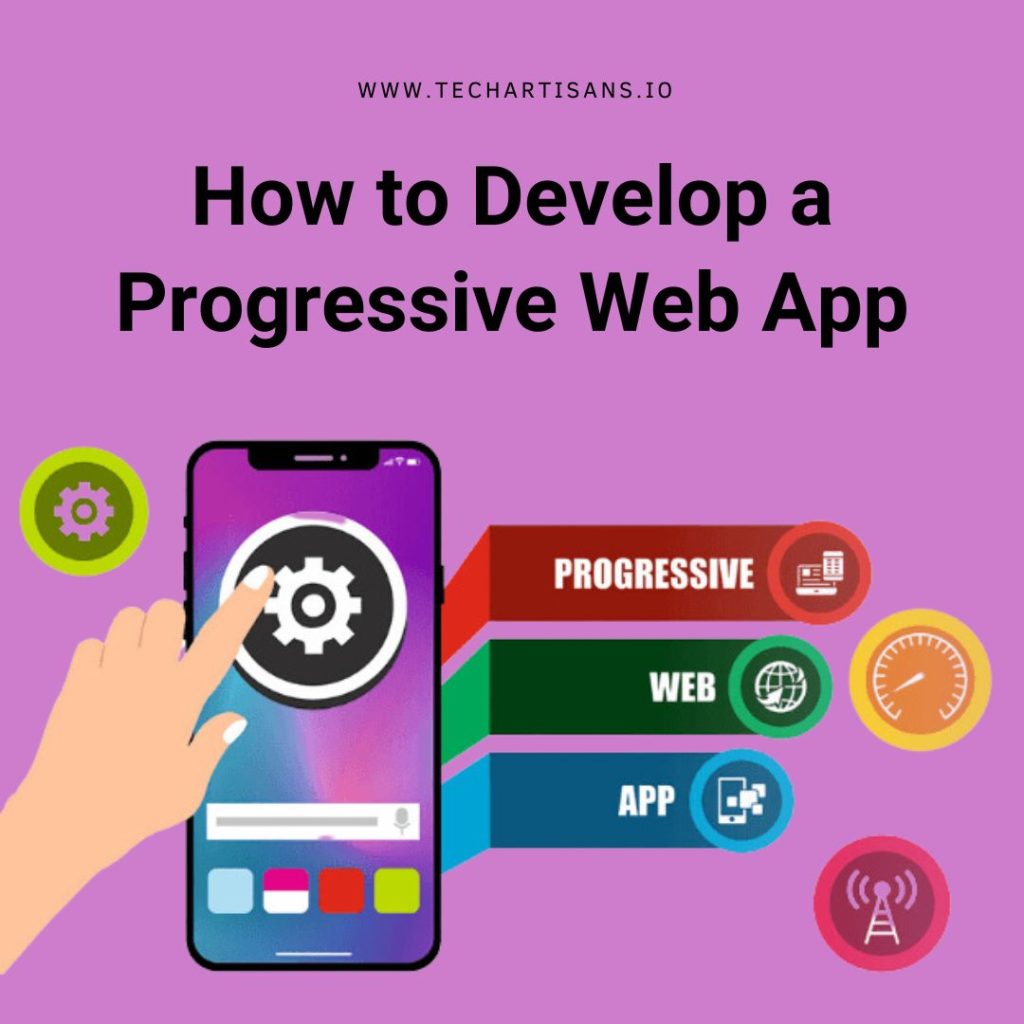Progressive Web Apps (PWAs) are the future of web development, offering a powerful blend of speed, reliability, and user engagement. Their unique capabilities redefine the user experience, bridging the gap between native apps and traditional websites. But what exactly are PWAs, and why should you care about them? In this blog, we will dive into the world of PWAs and explore their potential impact on the future of web development.
Enhanced User Experience
PWAs offer a seamless, responsive, and app-like experience, eliminating the need for users to manually update their apps. They work uniformly across all platforms, ensuring an optimized and consistent user experience regardless of the device used.
Speed and Performance
PWAs are known for their exceptional speed and performance, loading quickly even under poor network conditions and providing a seamless user experience. Improved speed and good performance contribute to increased user engagement and retention rates.
Offline Functionality and Reliability
Progressive Web Apps (PWAs) offer offline functionality, allowing users to access content even when their internet connection is unstable or non-existent. Their reliable performance under any network condition sets them apart, providing a seamless browsing experience regardless of connectivity.
Home Screen Accessibility and Easy Installation
PWAs can be easily installed directly from the browser, eliminating the need for app stores. Once installed, they are fully accessible from the home screen, just like native apps, providing users with convenient one-click access.
Business Advantages of PWAs
Let’s delve deeper into the business advantages of adopting PWAs.
Improved Engagement and Conversion Rates
PWAs improve user engagement with fast, reliable experiences and app-like interfaces. Offline functionality builds interaction and conversion. Additionally, PWAs can send push notifications to keep users engaged and encourage revisits.
Cost-Effective Development and Maintenance
PWAs, being platform-independent, eliminate the need for multiple codebases, leading to cost-effective development and easier maintenance. This results in significant time and resource savings while ensuring a consistent experience across all devices.
Independence from App Stores and Direct Updates
PWAs bypass the need for app store approvals, offering direct updates and installations to users. This accelerates the update process, ensuring users always have the most recent version with the latest features and fixes.
Enhanced Security Features
PWAs enhance security by mandating HTTPS, ensuring that all data transmitted is encrypted and secure. This, coupled with web app manifest and service workers, provides users with a safe and secure browsing experience.
Technical Benefits for Developers
Progressive Web Apps (PWAs) not only offer an enhanced user and business experience but also bring in a host of technical benefits for developers. Let’s uncover how the development process transforms for the better with PWAs.
Simplified Web Development Standards
PWAs utilize common web technologies like HTML, CSS, and JavaScript, simplifying development. This allows developers to build PWAs using their existing skills and tools, eliminating the need to learn platform-specific languages.
Cross-Platform Compatibility
PWAs ensure cross-platform compatibility, delivering a consistent user experience across all devices. They function seamlessly on any platform that uses a standards-compliant browser, whether a desktop, mobile, or tablet. This universality simplifies development and enhances user engagement across diverse platforms.
No Separate iOS and Android Development
PWAs eliminate the need for separate iOS and Android development, providing a unified solution that works across all mobile platforms. This drastically reduces the time and resources spent maintaining separate codebases for each platform and delivers a consistent user experience across all devices.
Case Studies and Real-World Examples
Let’s delve into some real-world examples and case studies demonstrating the practical application and success of Progressive Web Apps (PWAs). Various businesses have used PWAs to increase user engagement and conversion rates and streamline development.
Success Stories of Businesses Using PWAs
Let’s look at inspiring success stories highlighting how businesses leveraged PWAs to optimize user experience, enhance engagement, and boost revenue.
Twitter Lite
Twitter launched its PWA, Twitter Lite, to improve mobile engagement and reduce data consumption. The result was a 65% increase in pages per session, 75% more Tweets, and a 20% decrease in bounce rate.
Starbucks
Starbucks’ PWA has successfully driven a significant increase in daily active users. The PWA is 99.84% smaller than the native app, delivering a fast, engaging experience even on slow networks and resulting in double the number of daily active users.
Pinterest implemented a PWA and noticed a 60% increase in core engagements, a 40% rise in ad revenue rate, and a 50% increase in user-generated ad revenue. Their PWA loads quickly and has led to a significant boost in user engagement and conversions.
Comparative Analysis with Traditional Apps
When compared to traditional apps, PWAs offer several distinct advantages. They are far more lightweight, ensuring faster load times and lower data usage. Unlike traditional apps, they don’t require downloading from an app store, saving users time and device storage. Their offline functionality outperforms traditional apps, offering uninterrupted user experiences regardless of network conditions.
SEO and Marketing Implication
Let’s now explore the profound implications PWAs hold for SEO and marketing and how they can dramatically enhance a brand’s online visibility and customer reach.
PWAs and Their Impact On Search Engine Ranking
Progressive Web Apps (PWAs) positively impact search engine rankings due to their fast loading times, mobile-friendliness, and offline capabilities. They offer an app-like experience on all devices, which can significantly improve user engagement and dwell time, factors that are taken into account by search engine algorithms. The use of HTTPS in PWAs ensures a secure browsing environment, which is an important ranking factor for search engines like Google.
Marketing and Re-Engagement Through Push Notifications
PWAs enable businesses to re-engage users effectively through push notifications, similar to native apps. These notifications, sent directly to a user’s device, can significantly boost interaction rates and bring dormant users back to the application.
Drawbacks and Considerations
Let’s explore some possible challenges and considerations associated with deploying Progressive Web Apps.
Limitations of PWAs
Even though Progressive Web Apps (PWAs) come with several benefits, they have certain limitations in comparison to native apps:
- Access to Device Features: PWAs have limited access to device features. While they can access certain functionalities like push notifications and cameras, they cannot utilize advanced device capabilities like fingerprint scanning, face ID, advanced AR/VR capabilities, etc., available in native apps.
- Performance: Native apps generally deliver better performance in terms of speed and fluidity of animations. PWAs, being web-based, may not offer the same level of performance.
- App Store Presence: Native apps can be discovered and downloaded from app stores, which can be a significant source of visibility and user acquisition. PWAs are not listed in app stores.
- Operating System Integration: Native apps provide better integration with the device’s operating system, offering a seamless user experience. PWAs may not be as smooth due to their cross-platform nature.
Scenarios Where PWA Might Not Be Ideal
While PWAs offer a wide range of benefits, they may not be the best fit for businesses that require advanced device capabilities, extensive animations, or a high level of operating system integration. Businesses relying heavily on an app store for user acquisition might find native apps more beneficial.
Conclusion
When businesses consider implementing Progressive Web Apps, they should evaluate the specific needs, user base, and experience they want to provide. If the advantages of fast load times, offline capabilities, no app store approval, and broader accessibility are more important than the current limitations, then implementing a PWA could be a strategic decision. Ultimately, the choice depends on aligning technological choices with business objectives and meeting user expectations.

